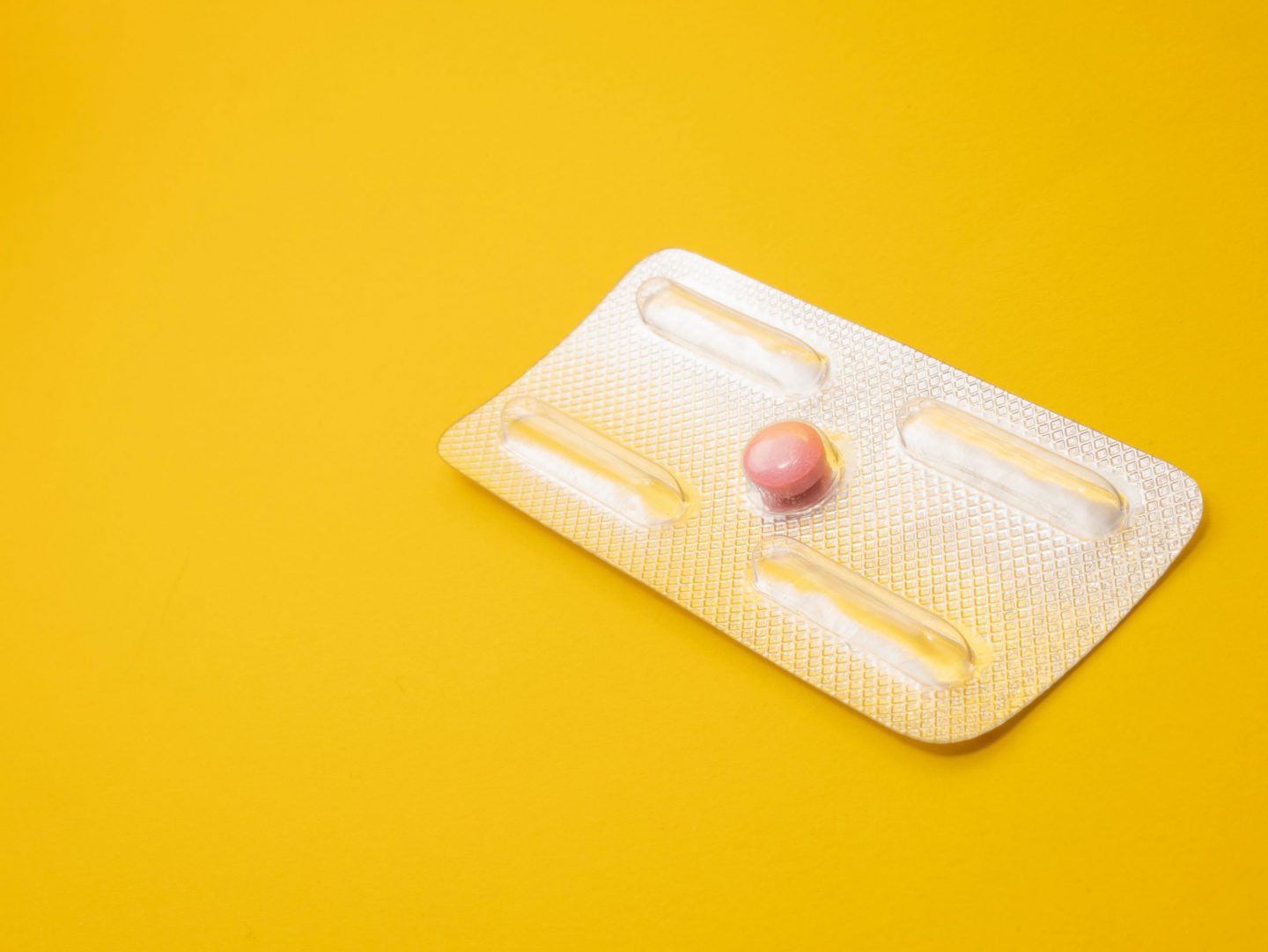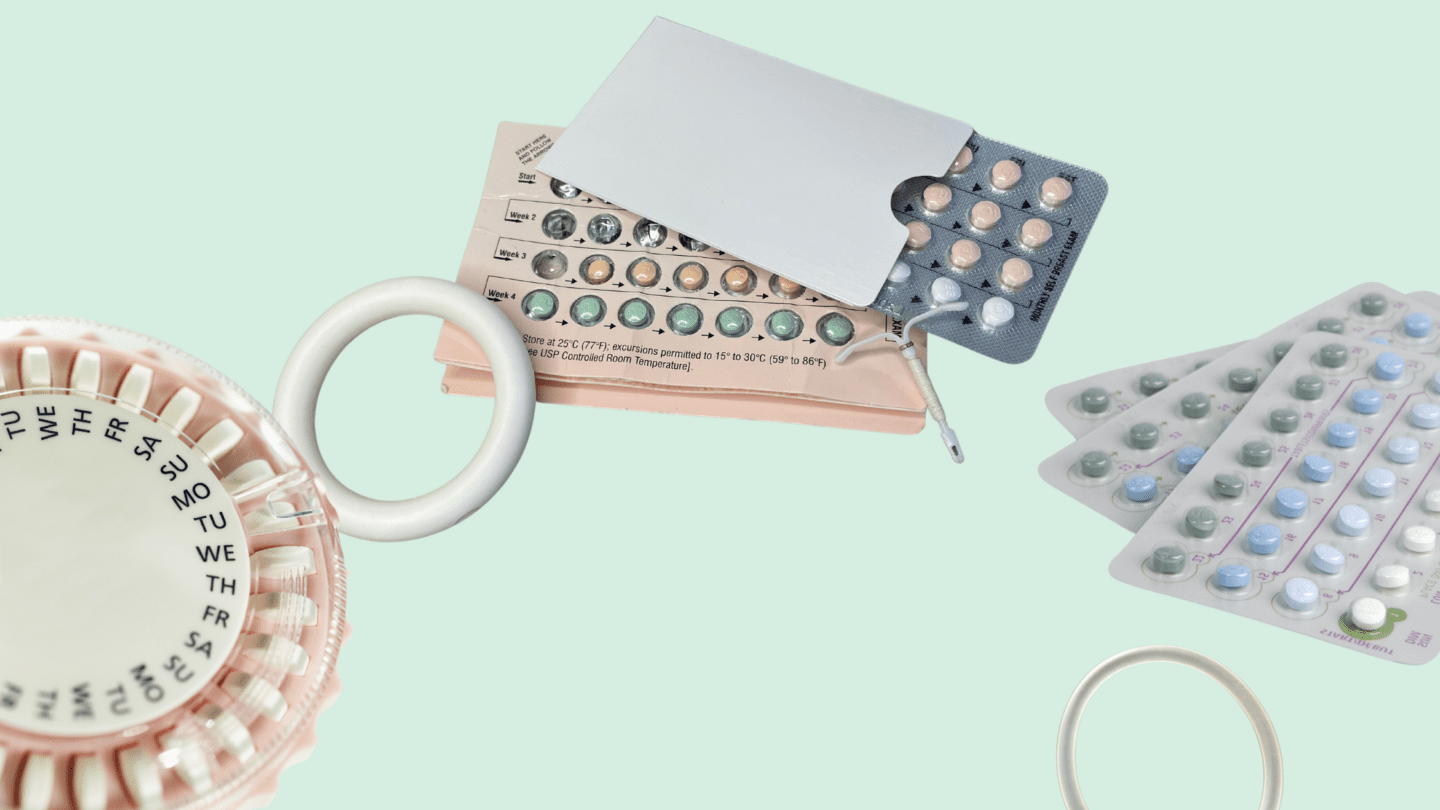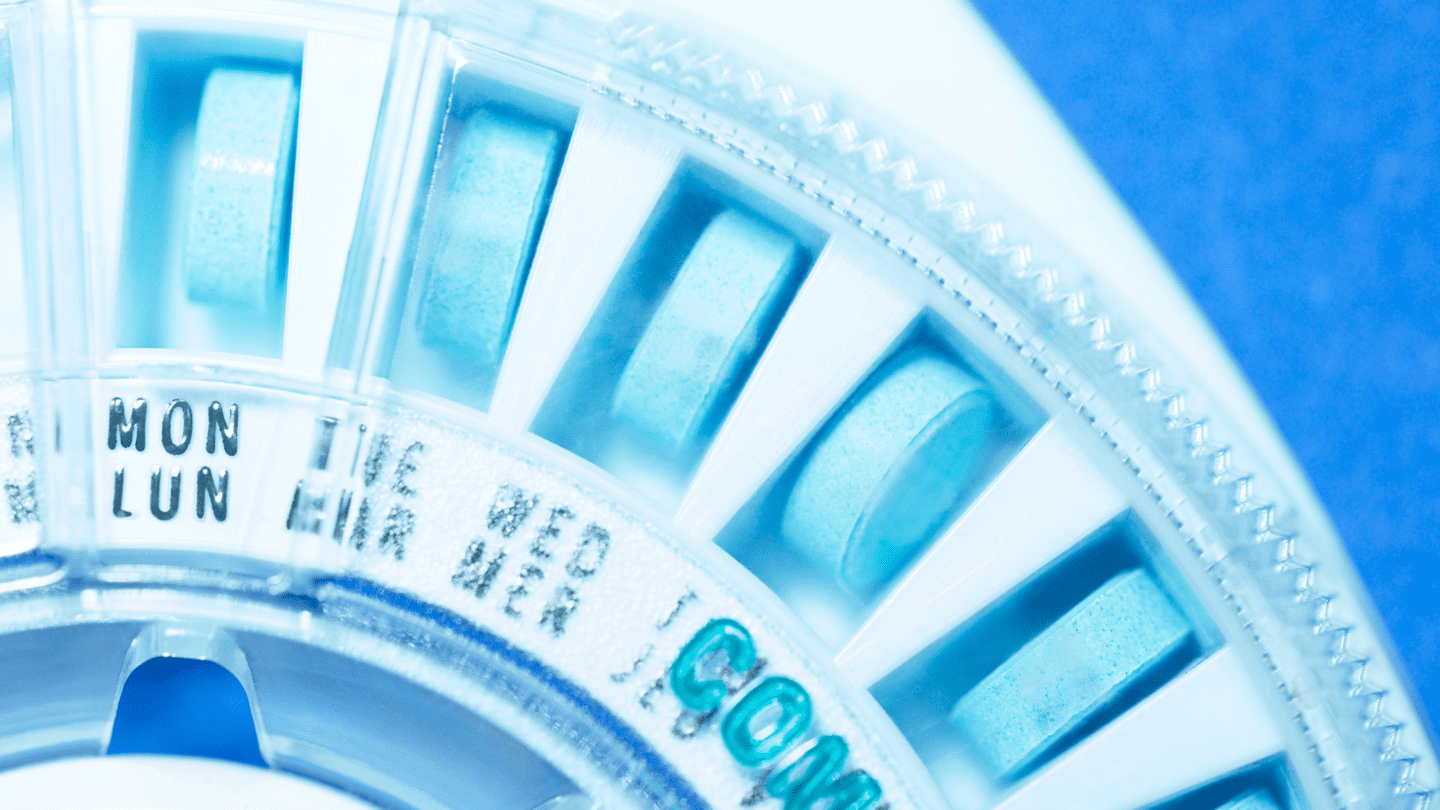Mistakes are totally normal when it comes to sex. Condoms can slip or break, or you might accidentally skip a dose of your birth control pill. But if you’re not planning to get pregnant, mistakes can be life-altering. Thankfully, there are emergency contraceptive options, like “Plan B.”
When slip-ups happen, emergency contraceptives can be used to prevent pregnancy within days after unprotected sex. Plan B pushes pause on your reproductive system to prevent a pregnancy from ever forming. But there’s more than one emergency contraceptive option out there, and it’s good to know how well each one works because different bodies require different solutions.
So, how do you choose an emergency contraceptive that will be effective for you? How long are pills like Plan B effective, and how many days after sex can you wait to take them? Here’s a guide to your biggest emergency contraceptive questions. And remember, while mistakes can be stressful, many people with uteruses have seen effective results from emergency contraceptives.
How do emergency contraceptives work?
Emergency contraceptives like Plan B work by stopping your from releasing an egg using a compound called levonorgestrel. This synthetic is also commonly found in methods such as hormonal IUDs and the pill. However, the amount of levonorgestrel in a Plan B pill is much higher than daily .1
Plan B pills are designed to be taken after unprotected sex rather than before it. Since they put a pause on the , Plan B makes it less likely for sperm to meet and fertilize an egg in the fallopian tubes. If there’s no fertilized egg to implant inside the , a pregnancy cannot form.
Is adyn right for you? Take the quiz.
How effective is Plan B?
When taken within 24 hours of unprotected sex, Plan B is 95% effective. But its effectiveness falls the longer you wait after that: From 48 to 72 hours, it’s only 61% effective. After 72 hours, it’s not considered effective. That’s why it’s important to take it as soon as possible, and know you might need to seek other options after two or three days.
Besides the timing, there’s another important factor that can determine emergency contraceptive effectiveness: where you are in your menstrual cycle.
If you’ve already started ovulating, there’s a good chance Plan B might not work. That’s because its whole job is to prevent eggs from being released from the in the first place. If an egg has already found its way out of the and into the fallopian tubes, there’s less of a guarantee that sperm won’t be able to reach it.
How do you know if you’ve started ovulating? A good benchmark is 14 days into your cycle — this is roughly the time that you are most fertile. Small body temperature fluctuations can also be an indicator that your just released an egg.2 Or a cycle tracking app can help you estimate your ovulation window more accurately.
One study from 2007 followed 99 women after they had unprotected sex and took an emergency contraceptive pill containing levonorgestrel.3 Three women still ended up getting pregnant; they had taken the pill two days after they started ovulating. However, women who took the pill before or on the day of ovulation were able to avoid pregnancy.
If you’re pretty sure you had unprotected sex during your fertile window, don’t fret. Plan B may be one of the most accessible ways to prevent a pregnancy, but it isn’t the only option.
Like what you’re reading? Get the latest straight to your inbox 💌
Other emergency contraceptives
There is one other emergency contraception option in pill form that isn’t Plan B. Though it works similarly to levonorgestrel, a compound called ulipristal acetate can also stop you from ovulating long enough to prevent pregnancy. Sold under the drug name ella, this emergency contraceptive is effective for a longer period of time than Plan B — up to five days.
Otherwise, you might be familiar with the copper IUD as a long-term birth control option. It’s actually more effective as an emergency contraceptive than Plan B — over 99 percent.4 However, doctors rarely recommend this option,5 so you might have to be the one to initiate the IUD conversation with your healthcare provider.
Read more: How to Advocate for Yourself During a Doctor’s Visit
You can get a copper IUD as an emergency contraceptive up to five days after unprotected sex. This method works a little differently than Plan B: the point you’re at in your menstrual cycle also has less of a bearing on whether or not it will work.
Copper ions make it harder for sperm to swim (and may even kill them), nixing the chances that any will fertilize an egg.6 A copper IUD can also prevent an egg from implanting into the even if it’s already been fertilized.7 Not only can it stop an unwanted pregnancy in an emergency situation, but copper IUDs can stay in the body for up to 10 years. That means you can have a consistently reliable method of everyday .
Emergency contraceptives and weight
Does Plan B have a weight limit? No, its efficacy relies more on how quickly you take it rather than how much you weigh. However, the World Health Organization notes that some data suggests levonorgestrel may be less effective for those with a BMI over 30.
One study from 2015 looked at two large-scale trials of people taking levonorgestrel as an emergency contraceptive. They found that as the participants’ weight increased, their risk of pregnancy also increased.8 Planned Parenthood also states that Plan B might not work for those over 155 pounds. For ella, that limit goes up to 195 pounds.
However, you’ll need a prescription for ella. Like Plan B, it has a higher chance of preventing pregnancy the sooner you take it.
That potential difference may be lost on many pharmacies. According to a 2020 study, pharmacists are often unaware of the difference between levonorgestrel and ulipristal acetate when it comes to weight. As with all , it helps to be informed when seeking out emergency contraception from your healthcare provider.9
Shelf life of Plan B and other emergency contraceptives
The shelf life of Plan B is up to four years, if stored correctly. Ella, on the other hand, has a shelf life of three years.
After that, neither pill will be dangerous to take, but they will decrease in effectiveness. In an emergency, you don’t want to take a gamble if the expiration date is passed. Your best bet is to get a new Plan B pill over-the-counter from the pharmacy or contact your healthcare provider for ella if you’re unsure your old medication will work.
Drug interactions with emergency contraceptives
There are some drug interactions with emergency contraceptives like Plan B and ella. According to the FDA, drugs and herbal products that contain certain enzymes may decrease the effectiveness of both these pills.
Some of these products include: St. John’s wort, barbiturates, certain blood pressure medications, and certain anticonvulsants. Alcohol isn’t known to slow the uptake of emergency contraceptives, but they can worsen some of the side effects.
Is emergency contraception an abortion?
Emergency contraceptive pills are not the same as an abortion. Abortion pills terminate a pregnancy after an egg has been fertilized and implanted into the .
Because drugs like Plan B and ella stop an egg from ever becoming fertilized, they prevent a pregnancy from happening in the first place. Even though copper IUDs work a little differently by killing sperm and preventing eggs from implanting, they also block a pregnancy from forming.
Are emergency contraceptives safe?
Emergency contraceptives are safe to use and are effective for many people who take them. You may have unpleasant side effects such as nausea, vomiting, cramps, or tiredness, but these usually clear up within a day or two.
Though you can safely take Plan B or ella as often as needed, there are better ways to prevent pregnancy than relying on the morning-after pill as your sole method of . IUDs, implants, and birth control pills provide consistent, reliable protection, especially when combined with condoms. And not only will they give you peace of mind, but they’ll likely be cheaper in the long run.
There’s also no evidence that Plan B or ella can affect your fertility, and just because you opt not to conceive now doesn’t mean you can’t later. Think of these interventions as just another tool at your disposal to take charge of your life. Like , they empower you to embrace your sexuality and decide when, if ever, you want to be pregnant.
If you’re looking for a long-term method and aren’t sure where to start, try our Birth Control Test. We’ll make it easy to find the method that’s best for you.
-
- Vrettakos, Christina, and Tushar Bajaj. “Levonorgestrel.” StatPearls [Internet] (2019).
- Steward, Kaitlyn, and Avais Raja. “Physiology, Ovulation And Basal Body Temperature.” StatPearls [Internet] (2021).
- Novikova, Natalia, et al. “Effectiveness of levonorgestrel emergency contraception given before or after ovulation—a pilot study.” Contraception 75.2 (2007): 112-118.
- Cleland, Kelly, et al. “The efficacy of intrauterine devices for emergency contraception: a systematic review of 35 years of experience.” Human Reproduction 27.7 (2012): 1994-2000.
- Harper, Cynthia C., et al. “Copper intrauterine device for emergency contraception: clinical practice among contraceptive providers.” Obstetrics and Gynecology 119.2 Pt 1 (2012): 220.
- “Copper Ion.” ScienceDirect Topics. N.D. Last accessed 2022 Jan 21.
- Gemzell-Danielsson, Kristina, Cecilia Berger, and P. G. L. Lalitkumar. “Emergency contraception—mechanisms of action.” Contraception 87.3 (2013): 300-308.
- Kapp, Nathalie, et al. “Effect of body weight and BMI on the efficacy of levonorgestrel emergency contraception.” Contraception 91.2 (2015): 97-104.
- Kaur, Guneet, et al. ““The Difference between Plan b and ella®? They’re Basically the Same Thing”: Results from a Mystery Client Study.” Pharmacy 8.2 (2020): 77.








